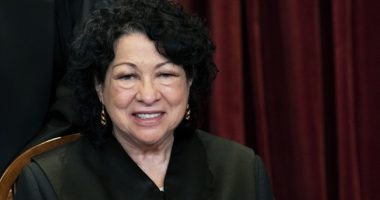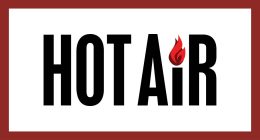- Economy grew by just 1 per cent
Australia’s economy is now growing at the slowest pace since the early 1990s recession outside of a pandemic.
Gross domestic product grew by just 1 per cent in the year to June – well below the long-run average of 3 per cent despite high immigration.
The cost-of-living crisis is forcing consumers to cut back on spending like they did during Covid lockdowns.
Outside of the 2020 pandemic, this was the slowest annual pace of economic growth since the 1991 recession – the last economic downturn sparked by aggressive interest rate hikes.
The bad news, in the national accounts, was delivered just days after Treasurer Jim Chalmers accused the Reserve Bank of ‘smashing the economy’ with its rate rises.
Deloitte Access Economics partner Stephen Smith said high immigration had failed to boost economic activity.
‘Today’s national accounts data show the economy is still on life support, with growth over the past year slipping to its slowest pace since the early 1990s, outside of the pandemic,’ he said.
‘Today’s figures will come as no surprise to many Australians who are already battling through recession-like conditions.

Australia’s economy is now growing at the slowest pace since the early 1990s recession
‘Household consumption has fallen in the past three months despite still strong population growth.’
Australia isn’t yet in a technical recession, defined as two consecutive quarters of economic contraction.
But it has been in a per capita recession since early 2023, with output for every Australian shrinking by 1.5 per cent during the last financial year.
While productivity grew by a weak 0.5 per cent over the year, in the June quarter it fell by 0.8 per cent over three months.
The cost-of-living crisis is really biting with household spending falling by 0.2 per cent, marking the worst downturn since mid-2021 when the Delta outbreak led to lockdowns in Sydney and Melbourne.
Australia is also seeing a record number of business insolvencies, following the Reserve Bank’s 13 interest rate rises in 2022 and 2023.
Prime Minister Anthony Albanese’s Labor government is due to face voters by May next year, with Reserve Bank Governor Michele Bullock last month ruling out rate cuts before Christmas.
Dr Chalmers earlier this week braced for the bad news by blaming the RBA for Australia’s sluggish economy.
‘With all this global uncertainty on top of the impact of rate rises, which are smashing the economy, it would be no surprise at all if the national accounts on Wednesday show growth is soft and subdued,’ he said.

Prime Minister Anthony Albanese ‘s Labor government is due to face voters by May next year, with Reserve Bank Governor Michele Bullock last month ruling out rate cuts before Christmas
Variable mortgage repayments have surged by 68 per cent since May 2022, with the RBA cash rate at a 12-year high of 4.35 per cent.
Julia Gillard lost Labor its majority in 2010, following the Global Financial Crisis, even when annual economic growth was at a much more respectable 3.3 per cent in the wake of massive stimulus programs.
Even in better economic times, she was forced to form a minority government with the Greens and independents, with opinion polls showing a similar fate awaits the Albanese Government in 2025.
Weak economic activity has traditionally made it hard for Labor governments to get re-elected with Paul Keating only prevailing at the 1993 election because his Liberal opponent John Hewson had proposed a hated 15 per cent GST.
While the 1 per cent annual growth pace was the worst since 1991, it was slightly better than the Reserve Bank’s forecast of 0.9 per cent, made in its August statement on monetary policy.
Financial markets had also expected a 0.9 per cent increase.
During the June quarter, the economy grew by just 0.2 per cent.









